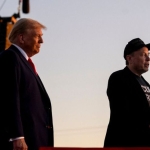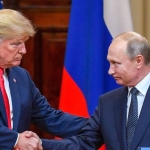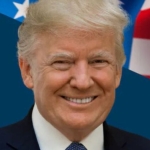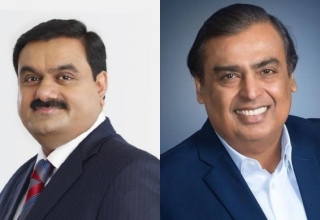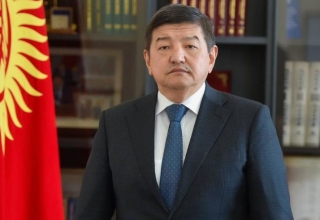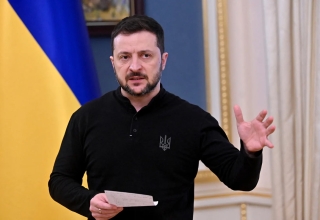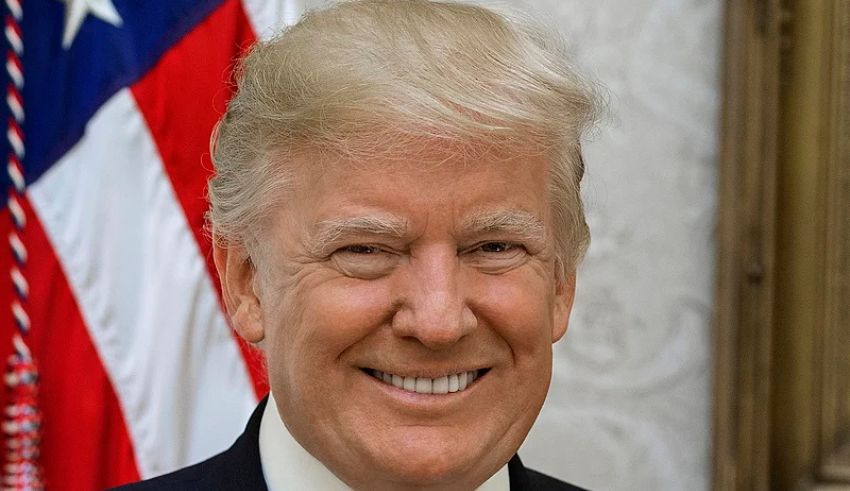
As Donald Trump prepares for his second administration, his cabinet choices blatantly deviate from his first government. Once distinguished by internal struggle, political infighting, and a revolving door of staff changes, what is now building to be an era marked by the consolidation of power, the prioritizing of loyalty, and a core fundamental restructure of the federal government? By choosing people who have been passionate supporters—sometimes including those with no past political experience at all—Trump’s decisions reflect his will to support his goals and influence. There has already been a lot of debate about this bold shift to give allegiance first priority above competence; when Trump moves forward with his choices, the political consequences of these choices will most likely be long-lasting on American government.
Constant inner conflict hampered Trump’s first term. From public disputes and scandals to early departures of key players, Trump struggled to maintain a consistent course. His government was often disorganized under public scrutiny and a fractured Congress, with significant posts left unoccupied or replaced by people with controversial pasts. As his second administration gets ready, Trump seems preoccupied in avoiding the faults that defined his first one. His most recent cabinet selections point to a taste for those who have constantly backed his presidency.
Whereas his first term witnessed a mix of loyalists and political experts, his second term looks focused on filling practically all vital roles with political followers who share his vision and have shown dedication during his campaign. While this strategy is a great unifier among Trump’s supporters, it raises serious concerns about whether these people—many of whom lack traditional government experience—can properly handle the complex issues confronting the nation including internal governance, national security, and foreign policy. One cannot just ignore the larger effects of such decisions. Trump’s government’s credibility may be undermined as it deals with significant internal and foreign difficulties by its constant focus on allegiance above experience.
Significant Cabinet Nominees and Their Future Effects on America
Here is a closer view of some of the powerful individuals Trump has selected thus far and what their likely confirmation could mean for the country as he moves with his cabinet nominations:
- Former critic turned supporter Marco Rubio is Secretary of State.
Among some other shocking decisions, Trump has chosen Florida Senator Marco Rubio as his Secretary of State. From a strong opponent of Trump during the 2016 Republican primaries to a devoted supporter in more recent years, Rubio’s political evolution over time is simply remarkable. Rubio is a well-known hawker on China, Cuba, and Iran whose more aggressive foreign policy approach suits really neatly.
Rubio, vice-chairman of the Senate Intelligence Committee and experienced in international politics, has a record as a vocal Trump opponent that begs questions about his choice. The senator’s earlier comments on Trump, labeling him as a “con man,” would most likely call into doubt his loyalty’s authenticity. Rubio’s more recent public support of Trump’s policies—including his views on immigration and global relations—could speak to a close bond even if he is still under Senate confirmation process observation. Apart from demonstrating Trump’s will to improve his foreign policy framework, Rubio’s appointment is a deliberate step to confirm a loyal supporter in one of the most powerful postulations in government.
- For the national top prosecutor, Matt Gaetz is a divisive pick.
Trump’s choice of Florida Representative Matt Gaetz for Attorney General provides still another proof of his focus on loyalty. Strong supporter of Trump, Gaetz has made headlines for his fervent defense of the president, especially throughout the impeachment procedure. Trump is obviously demonstrating his will to transform the Justice Department, which he has constantly blasted as “weaponized” against him, by choosing Gaetz for such a pivotal role.
Gaetz’s nomination sparks debate not without reason. Gaetz’s departing Congress following an investigation into allegations of wrongdoing would definitely cast questions about his qualifications for the office of Attorney General. Gaetz has denied any wrongdoing, but his experience begs moral issues that would compromise his credibility. Notwithstanding the baggage, Trump’s decision to nominate Gaetz reveals his will to validate his power over the Justice Department and turn it in line with his political agenda. Along with leading the legal campaign against supposedly political opponents, Gaetz would supervise key law enforcement organizations including the FBI and DEA.
- National Intelligence Director: Radical Outsider Tulsi Gabbard
Among the more unexpected choices Trump has made is appointing former Hawaii Congresswoman Tulsi Gabbard as Director of National Intelligence. Active supporter of Trump, Gabbard abandoned the Democratic Party in 2022, and has been campaigning with him. Unlike her predecessors, she left the Party Gabbard would be a significant outsider, and her appointment soberly reminds us of Trump’s tendency for valuing devotion above experience.
Gabbard is a polarizing individual because of her experience as an Army National Guard officer and her unconventional foreign policy views, particularly her questions of U.S. interventionism and her alleged sympathies toward Russia. Her military career has earned honors, but her political opinions have prompted criticism, especially over her prior comments on Russian engagement in foreign crises. Given senators’ focus on Gabbard’s low intelligence background and convergence with Russian interests as main vulnerabilities, her candidacy could prove divisive.
- Pete Hegseth: Defense Secretary, Media-Friendly Military Leader
Trump’s nomination of former Fox News presenter Pete Hegseth to oversee the Department of Defense is another example of his predisposition to give allegiance great importance. Hegseth calls into doubt his readiness to manage the crucial role of supervising U.S. military operations at a period of rising world tensions given his background as a television figure and lack of prominent military leadership experience.
Keep Reading
Should confirmation be verified, Hegseth would find it quite challenging to manage the ongoing wars in the Middle East and Ukraine as well as the growing security issues from China and North Korea. Using publically well-known individuals instead of traditional military generals or foreign policy specialists, Trump’s hiring further suggests that he plans to take a more muscular and media-oriented approach to national security.
- As commerce secretary, financial insider Howard Lutnick helps to shape trade policies.
Trump’s choice to name Cantor Fitzgerald CEO Howard Lutnick to lead the Department of Commerce reveals his focus on economic nationalism. Lutnick’s financial background and honest endorsement of cryptocurrencies and strict trade laws complement Trump’s more general ambition of economic supremacy. Lutnick’s confirmation is less divisive than some of Trump’s other choices, but his lack of government experience raises questions regarding his ability to handle the wide range of responsibilities of a huge and varied department. As Commerce Secretary, Lutnick would be particularly crucial in monitoring trade policies, tariffs, and economic ties with foreign nations—all of which are basic tenets of Trump’s “America First” strategy.
- Strong conservative stance on immigration is provided by Kristi Noem, Homeland Security Secretary.
South Dakota Governor Kristi Noem is the top candidate for the role of Homeland Security Secretary. Strong conservative Noem has publicly supported Trump’s tight immigration policies. She gained national recognition during her time as governor of South Dakota, as she kept the state basically free from COVID-19 restrictions. Her colorful personal stories and views on social issues, however, have drawn criticism particularly as she gets poised to oversee U.S. border security and immigration enforcement.
Her decision perfectly reflected Trump’s focus on strengthening his immigration policy. Since the Department of Homeland Security is crucial in carrying out Trump’s policies, Noem is expected to get both praises from his followers and harsh criticism from those who disagree with her points of view.
The Greater Picture: Government Created in Trump’s Image
The second Trump government is probably going to be characterized by a fundamental change of American policy. Apart from making sure his initiatives are carried out without resistance, his loyalty-based appointments are supposed to solidify power inside his government. This approach raises important issues about the long-term viability and stability of the federal government even if it would boost his electoral base and ability to implement his objectives.
The confirmation process will determine whether these choices pass muster with the Senate most importantly. Under Republican Senate leadership, the ideological and personal divisions among senators may lead to difficult confirmation battles. Moreover, these decisions question the balance of power inside the federal government since seasoned professionals are being excluded in favor of political cronies.
As Trump’s second term gets under way, these decisions could fundamentally alter American politics, foreign policy, and internal government direction. Beyond his presidency, the consequences of Trump’s altered administration will be felt in American democracy’s future as well as in the framework of world order.
